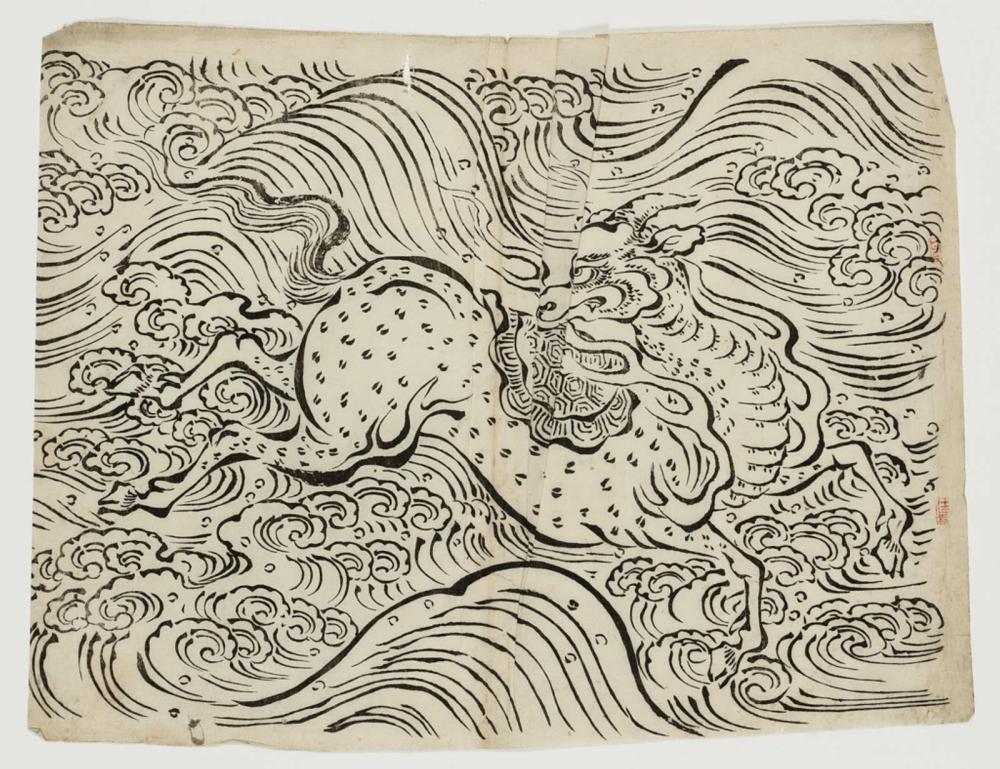Advanced Search 
浪に犀

Sai in Waves
浪に犀
Japanese
Edo period
mid to late 18th century
Medium/Technique
Woodblock print (sumizuri-e); ink on paper
Dimensions
Horizontal ôban; 29.2 x 38.5 cm (11 1/2 x 15 3/16 in.)
Credit Line
William Sturgis Bigelow Collection
Accession Number11.45877
NOT ON VIEW
CollectionsAsia, Prints and Drawings
ClassificationsPrints
DescriptionMFA impressions: 11.45861.44, 11.45862.20, 11.45877
Probably intended for use in commercial design. A sai is an imaginary water animal, similar in appearance to a kirin ("unicorn") but with a turtle-like shell on its back. In modern Japanese, sai means "rhinocerous," just as kirin means "giraffe."
Probably intended for use in commercial design. A sai is an imaginary water animal, similar in appearance to a kirin ("unicorn") but with a turtle-like shell on its back. In modern Japanese, sai means "rhinocerous," just as kirin means "giraffe."
Signed
Unsigned
無款
無款
無款
無款
ProvenanceBy 1911, purchased by William Sturgis Bigelow (b. 1850–d. 1926), Boston [see note 1]; 1911, gift of Bigelow to the MFA. (Accession Date: January 19, 2005)
NOTES:
[1] Much of Bigelow's collection of Asian art was formed during his residence in Japan between 1882 and 1889, although he also made acquisitions in Europe and the United States. Bigelow deposited many of these objects at the MFA in 1890 before donating them to the Museum's collection at later dates.
NOTES:
[1] Much of Bigelow's collection of Asian art was formed during his residence in Japan between 1882 and 1889, although he also made acquisitions in Europe and the United States. Bigelow deposited many of these objects at the MFA in 1890 before donating them to the Museum's collection at later dates.
